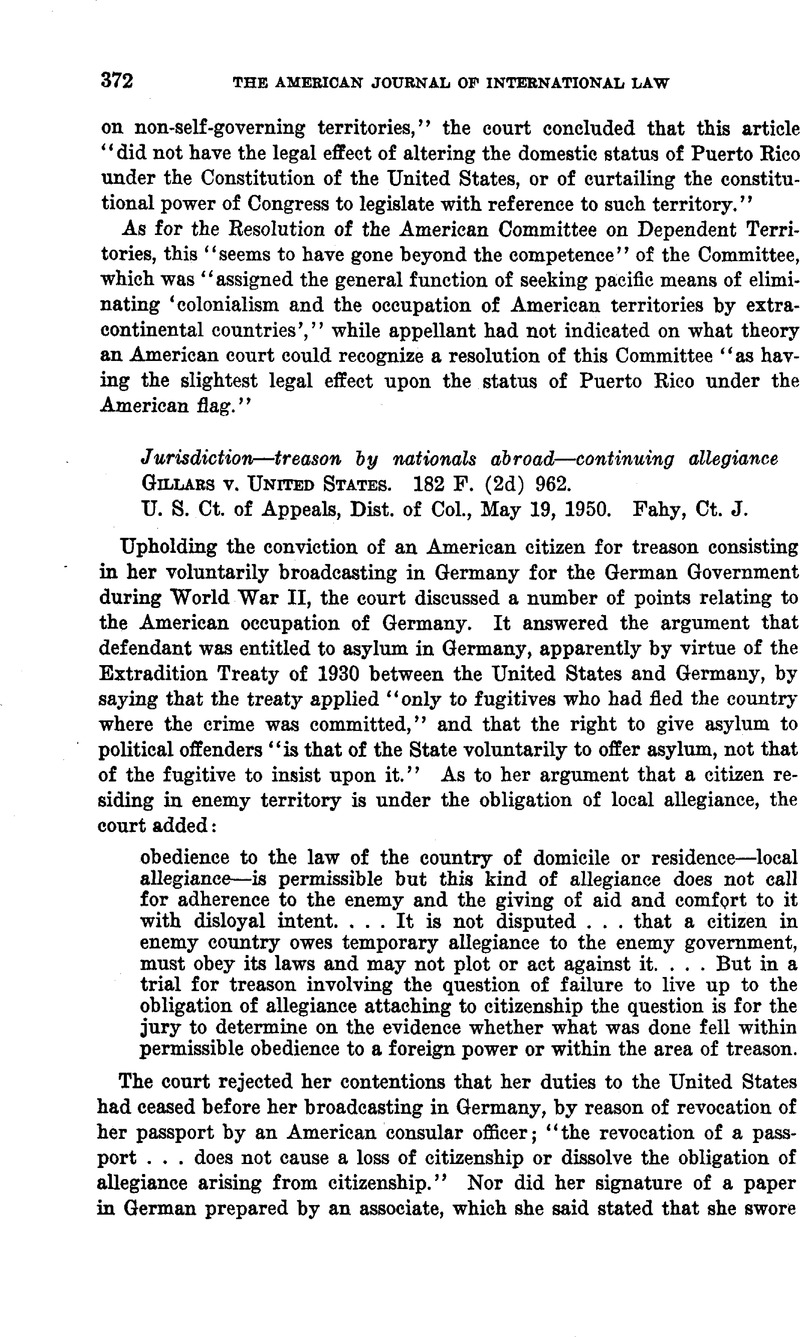No CrossRef data available.
Published online by Cambridge University Press: 20 April 2017

1 See also Best v. U. S., 184 F. (2d) 131 (Ct. App., 1st, July 6, 1950), affirming the conviction of an American citizen for treason committed in Germany by broadcasting for Germany in World War II, 76 F. Supp. 138 and 857 (D. Mass., 1948), this JOURNAL, Vol. 42 (1948), p. 727. The court found that “Best was willing, even eager, to play the Nazi game,” and held that “it is of no consequence that he may have thought it was for the ultimate good of the United States to lose World War II, in order that Hitler might accomplish the destruction of an ally of the United States whom Best regarded as a potential enemy.”